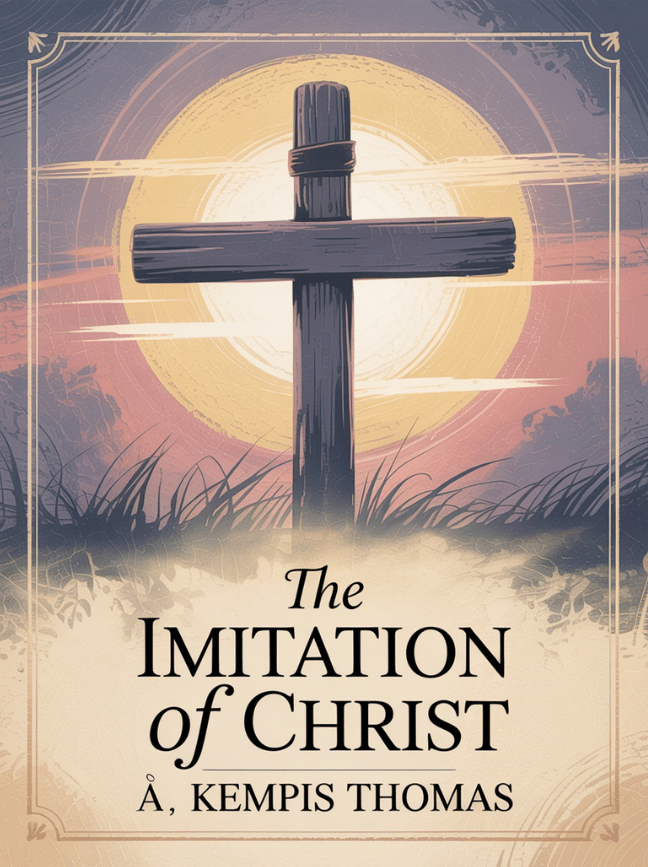34
CHAPTER 22. ON THE CONTEMPLATION OF HUMAN MISERY
Thou art miserable wheresoever thou art, and whithersoever thou turnest, unless thou turn thee to God. Why art thou disquieted because it happeneth not to thee according to thy wishes and desires? Who is he that hath everything according to his will? Neither I, nor thou, nor any man upon the earth. There is no man in the world free from trouble or anguish, though he were King or Pope. Who is he who hath the happiest lot? Even he who is strong to suffer somewhat for God.
2. There are many foolish and unstable men who say, "See what a prosperous life that man hath, how rich and how great he is, how powerful, how exalted." But lift up thine eyes to the good things of heaven, and thou shalt see that all these worldly things are nothing, they are utterly uncertain, yea, they are wearisome, because they are never possessed without care and fear. The happiness of man lieth not in the abundance of temporal things but a moderate portion sufficeth him. Our life upon the earth is verily wretchedness. The more a man desireth to be spiritual, the more bitter doth the present life become to him; because he the better understandeth and seeth the defects of human corruption. For to eat, to drink, to watch, to sleep, to rest, to labour, and to be subject to the other necessities of nature, is truly a great wretchedness and affliction to a devout man, who would fain be released and free from all sin.
3. For the inner man is heavily burdened with the necessities of the body in this world. Wherefore the prophet devoutly prayeth to be freed from them, saying, Deliver me from my necessities, O Lord. 1 But woe to those who know not their own misery, and yet greater woe to those who love this miserable and corruptible life. For to such a degree do some cling to it (even though by labouring or begging they scarce procure what is necessary for subsistence) that if they might live here always, they would care nothing for the Kingdom of God.
4. Oh foolish and faithless of heart, who lie buried so deep in worldly things, that they relish nothing save the things of the flesh! Miserable ones! they will too sadly find out at the last, how vile and worthless was
1 Psalm xxv. 17.
35
that which they loved. The saints of God and all loyal friends of Christ held as nothing the things which pleased the flesh, or those which flourished in this life, but their whole hope and affection aspired to the things which are above. Their whole desire was borne upwards to everlasting and invisible things, lest they should be drawn downwards by the love of things visible.
5. Lose not, brother, thy loyal desire of progress to things spiritual. There is yet time, the hour is not past. Why wilt thou put off thy resolution?
Arise, begin this very moment, and say, "Now is the time to do: now is the time to fight, now is the proper time for amendment." When thou art ill at ease and troubled, then is the time when thou art nearest unto blessing. Thou must go through fire and water that God may bring thee into a wealthy place. Unless thou put force upon thyself, thou wilt not conquer thy faults. So long as we carry about with us this frail body, we cannot be without sin, we cannot live without weariness and trouble.
Gladly would we have rest from all misery; but because through sin we have lost innocence, we have lost also the true happiness. Therefore must we be patient, and wait for the mercy of God, until this tyranny be overpast, and this mortality be swallowed up of life.
6. O how great is the frailty of man, which is ever prone to evil! To-day thou confessest thy sins, and to-morrow thou committest again the sins thou didst confess. Now dost thou resolve to avoid a fault, and within an hour thou behavest thyself as if thou hadst never resolved at all. Good cause have we therefore to humble ourselves, and never to think highly of ourselves, seeing that we are so frail and unstable. And quickly may that be lost by our negligence, which by much labour was hardly attained through grace.
7. What shall become of us at the end, if at the beginning we are lukewarm and idle? Woe unto us, if we choose to rest, as though it were a time of peace and security, while as yet no sign appeareth in our life of true holiness. Rather had we need that we might begin yet afresh, like good novices, to be instructed unto good living, if haply there might be hope of some future amendment and greater spiritual increase.





